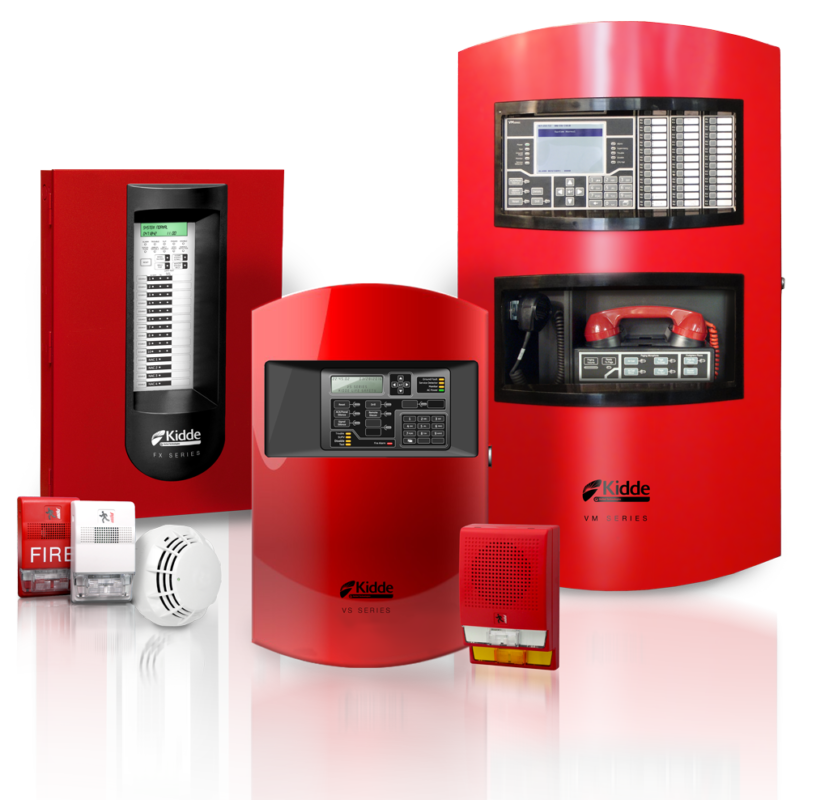- Annual Maintenance Contracts
- Automatic water extinguishing systems
- Design and approval of safety plans
- Fire early warning systems
- Fire extinguisher maintenance and filling
- Fire pumps
- Gas extinguishing systems
- Ground feeding networks (polyethylene)
- Manual fire extinguishing systems
- Safety Equipment Installation Certificate Technical/Municipal Report
- Surveillance cameras
Fire early warning systems
The main assumption of these systems is the speed of response to a fire and then converting this early response into an audible and visual signal to alert an individual or group of individuals in the building, place, relief or fire station that there is a fire in its early stages. Man is considered the greatest fire detector on earth because God has endowed him with the senses of hearing, touch, smell, taste, and vision in addition to the mind, which is a group of senses that cannot be combined in any detector, except that man is in constant motion and may not happen to be at the fire site or may be sick, asleep, or in a mental state that does not allow him to detect the fire. Naturally, fire detectors cannot distinguish the cause of the fire or assess its severity. Therefore, false alarms from these detectors may cause some problems that do not actually reflect a detection error, but may be due to the selection of inappropriate types of detectors or their random distribution without studying this. It has been agreed that the audible signal of the fire detector must be higher than the prevailing sound level in the area by (51) decibels, in addition to the necessity that these detectors be designed according to international standard criteria and tested under the supervision of well-known testing laboratories.

